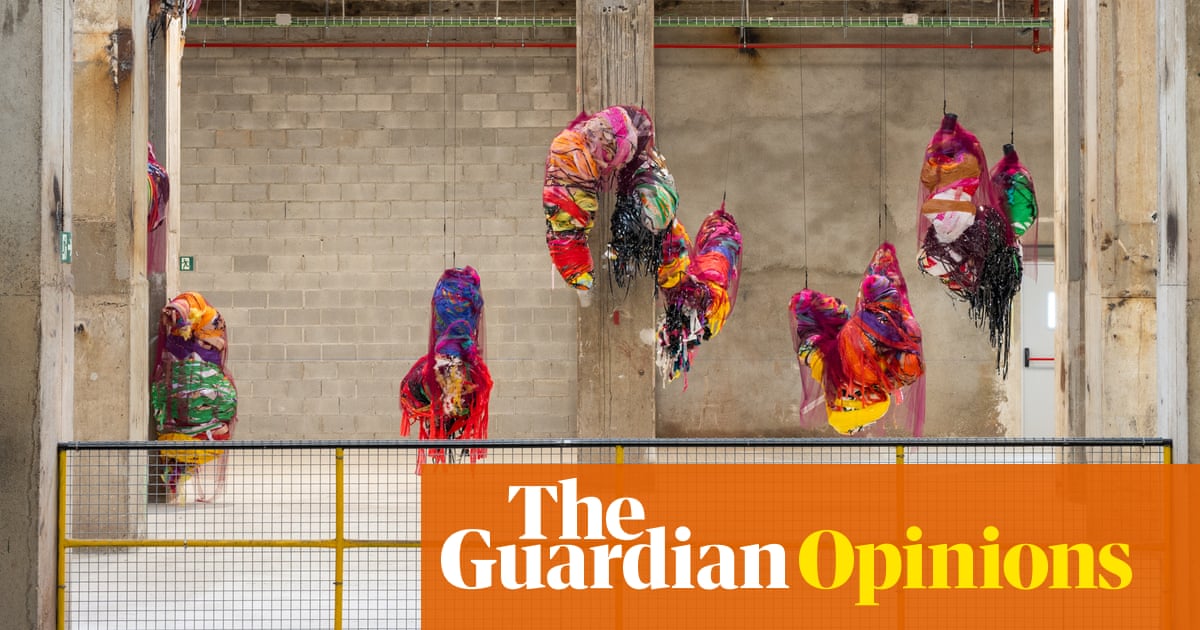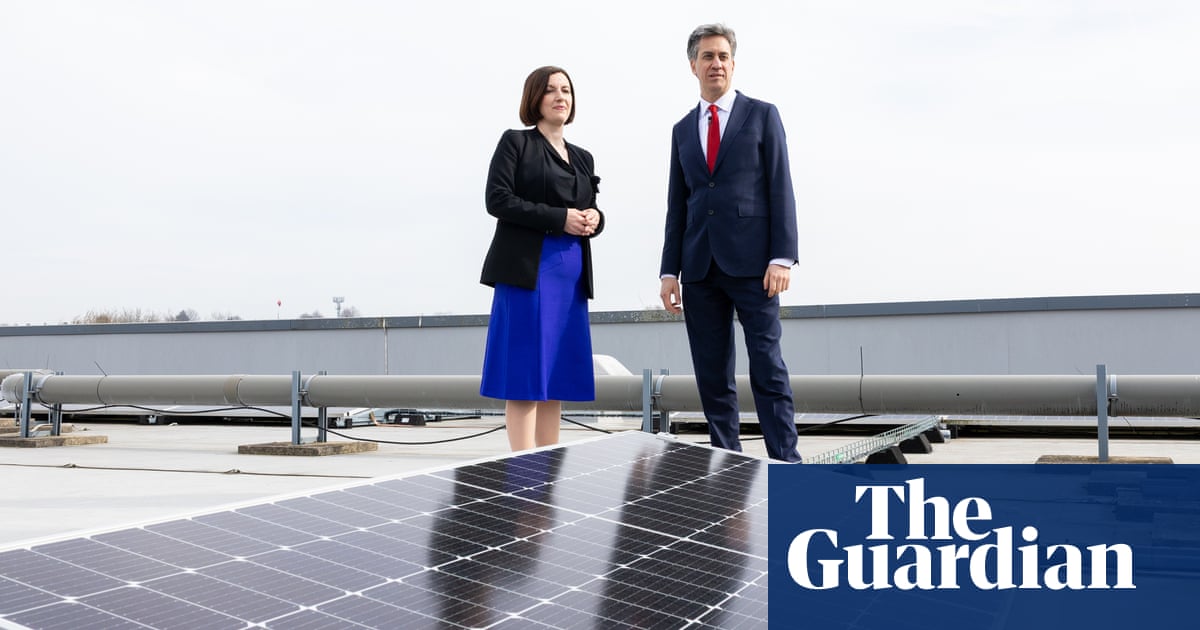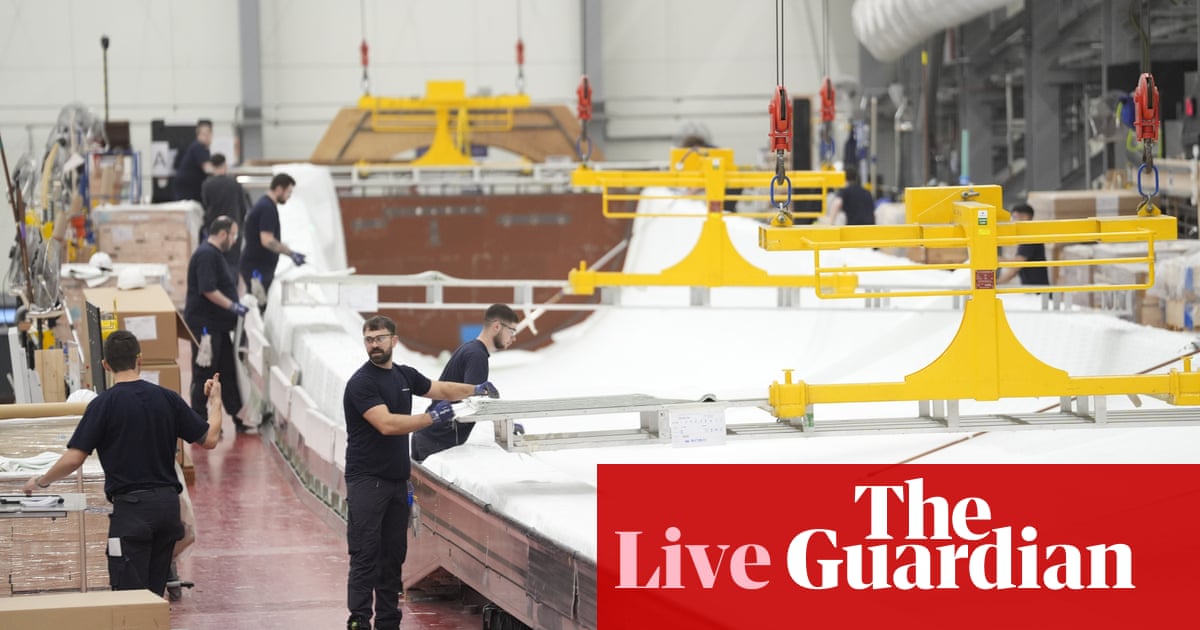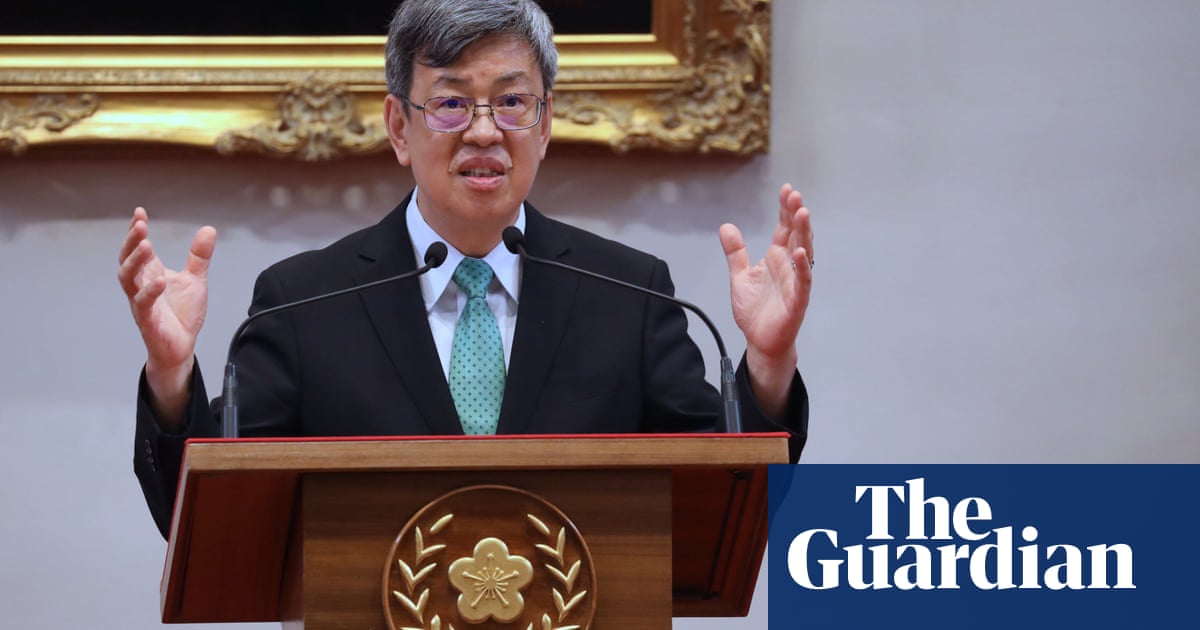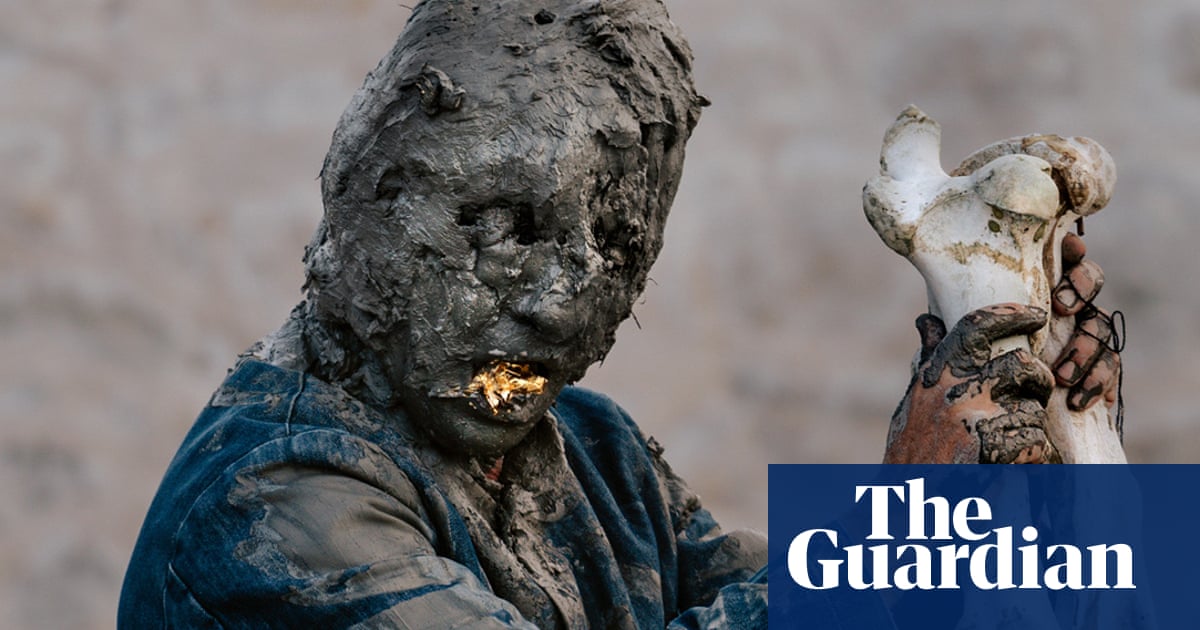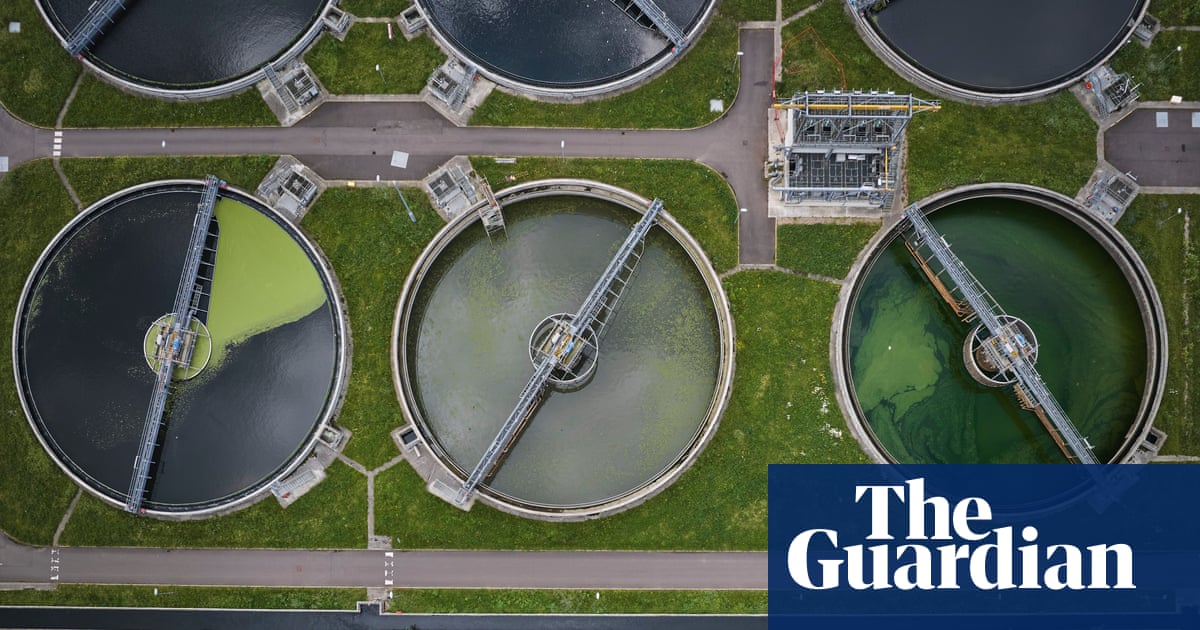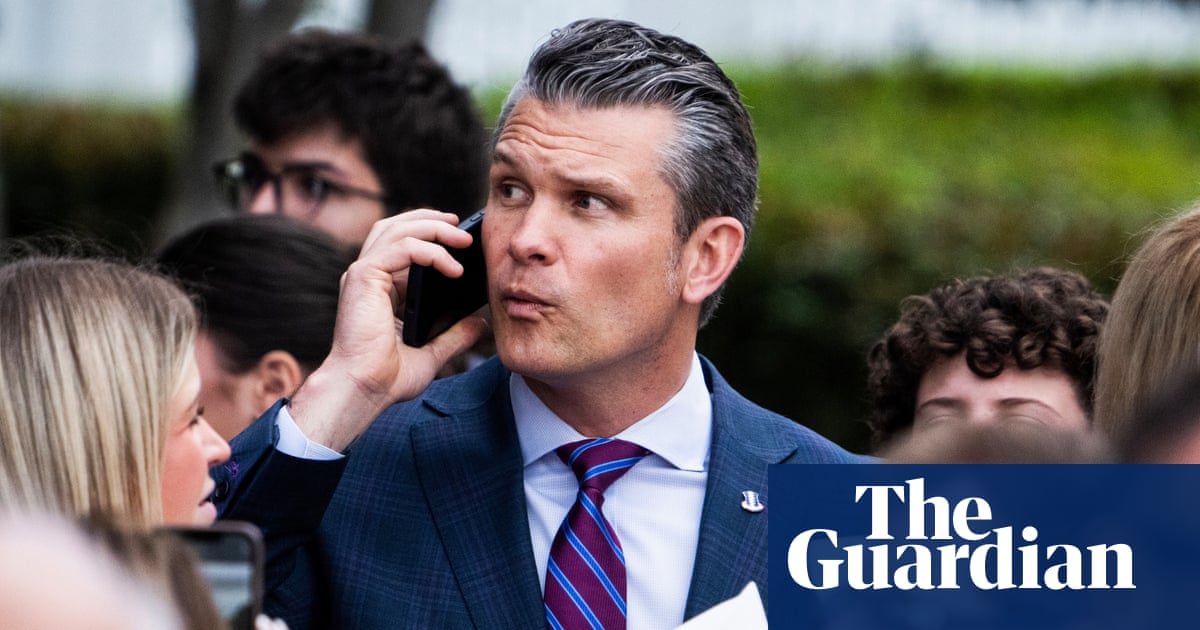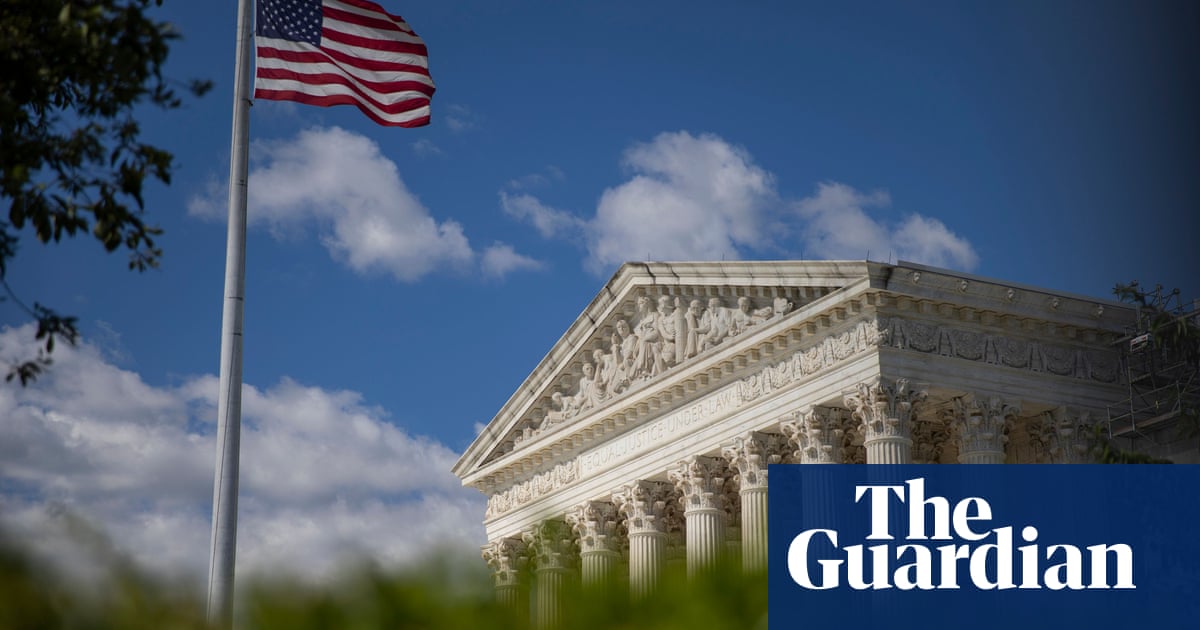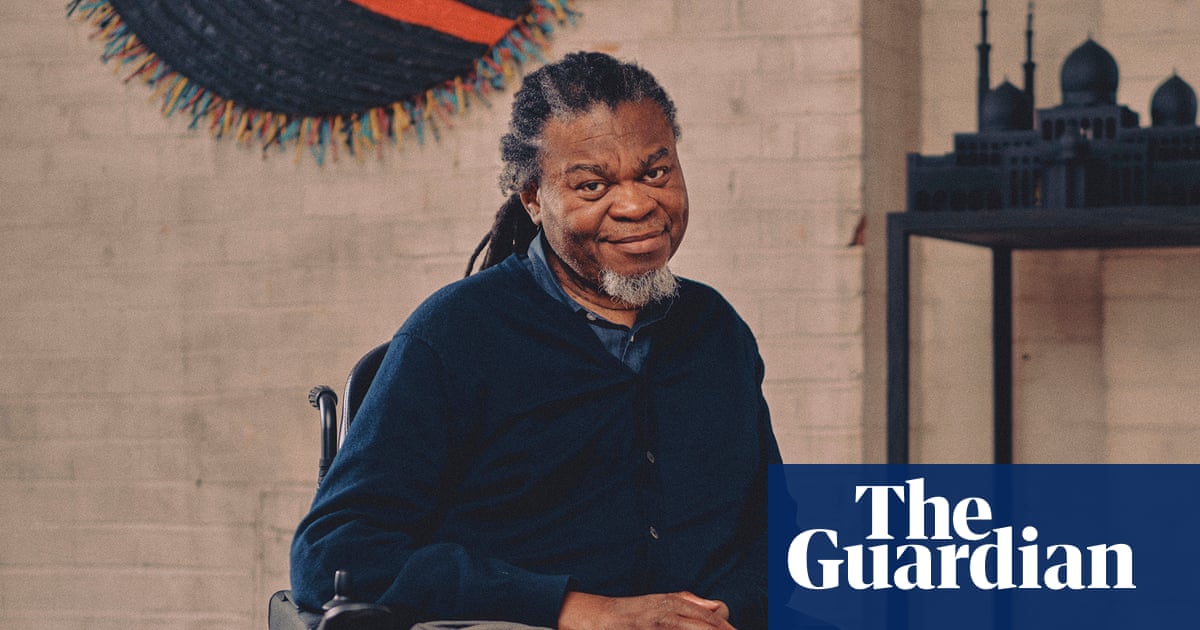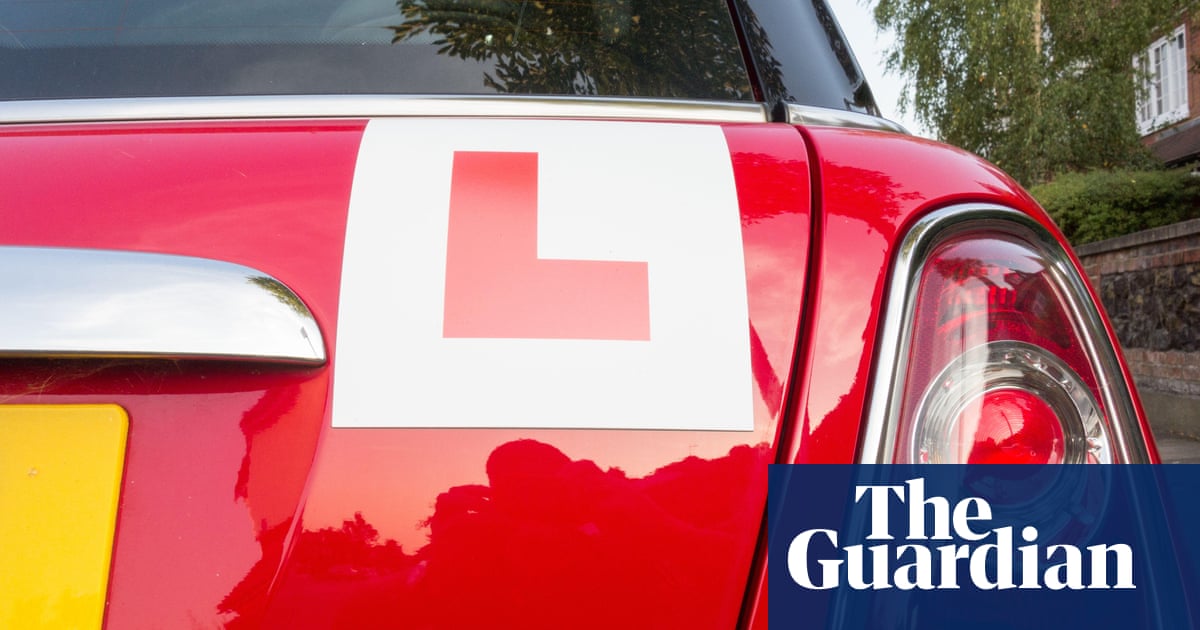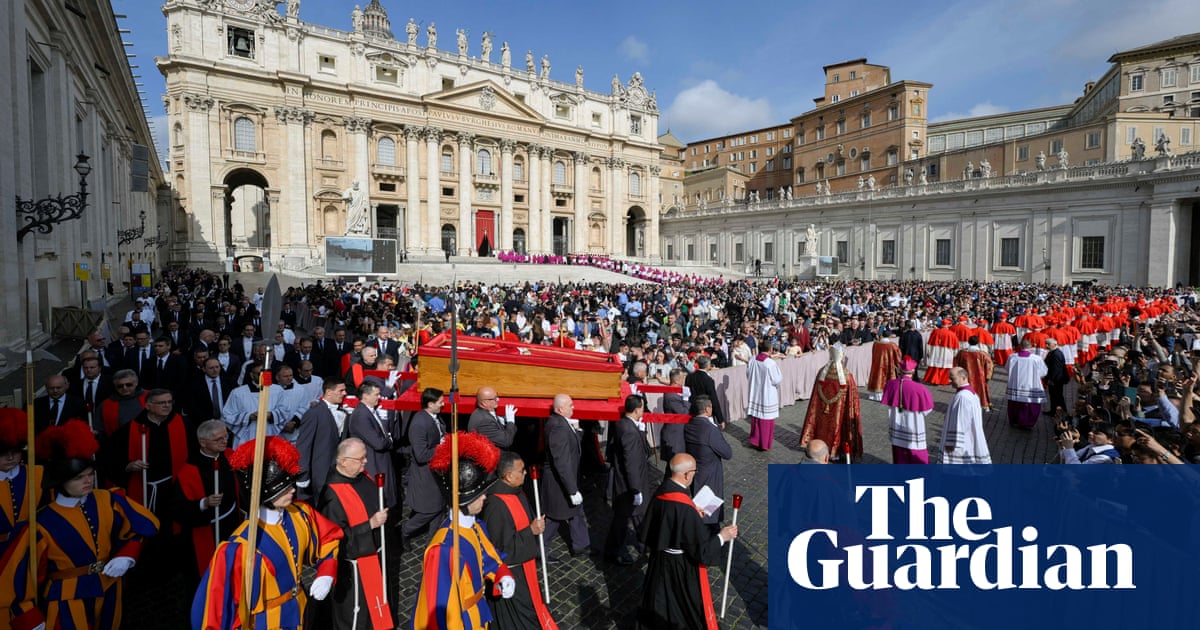The first time I clapped eyes on Rugeley, in Staffordshire, my mind boggled. Right in front of me were vivid symbols of two successive eras, sitting beside each other like layers in rock.
A disused coal-fired power station still dominated the skyline, but what now sat around its old cooling towers could not have been more different: branches of KFC, Burger King and Subway, a new-looking McDonald’s, a Premier Inn with an adjoining faux-traditional pub (named The Colliers, in limp tribute to the town’s history of coalmining), and a gargantuan construction that stretched into the distance. This was an Amazon fulfilment centre, opened in 2011 and said to be the size of nine football pitches. I spent a long afternoon outside its gates, watching people from the GMB union trying to recruit new members, while coaches full of workers came and went.
In 2023, two years after the power station had been demolished, Amazon announced that its Rugeley operation was closing down, and I resolved to return there with my Guardian colleague John Domokos to make another episode of our video series Anywhere But Westminster. And on 20 January, we finally found a reason to go back.
As strange as it may sound, Rugeley felt like a good place to feel the global shock waves from the inauguration of Donald Trump – dutifully attended, let’s not forget, by the Amazon founder, Jeff Bezos – and to find out what people thought about his style of politics. Last summer, the result in the local constituency of Cannock Chase saw the first stirrings of a change that has since gripped national politics: Labour and the Tories finished on 36% and 29% of the vote respectively, while the Anglo-Trumpers of Reform UK took a very impressive 27%.
As this shift has played out, there have been recent suggestions that any British appetite for Trump-style politics is bound to be limited. According to a recent poll by Ipsos, almost two-thirds of Britons hold a negative view of the returning president. Other surveys have suggested that we now think our ties with Europe should take priority over the US, and have thereby boosted a set of assumptions, old and new: the idea that Britons tend to find high-profile Americans brash and vulgar, an understanding that this president will surely shred any lingering delusions about the supposed special relationship – and, perhaps, an enduring belief in what George Orwell called “the gentleness of English civilisation”.
In Rugeley, it did not feel like that. Our first stop was a bustling community centre, where a parent and toddler group was happening next to a weekly lunch for pensioners – and we got a sharp sense of how the quiet privations and disappointments of 21st-century English lives have opened people to the specious promises of hard-right populism.
We had a long conversation with Emma and Cian, a couple who had come with their baby. “This is a very, very quiet town – it always has been,” she said. “Not a lot goes on around here … and nothing lasts long.” To most people, Cian told me, the arrival and eventual winding-down of the Amazon warehouse had barely registered. He didn’t know anyone who had worked there. “It’s just a big blue building at the end of the town that’ll be gone soon.”
I wondered: when the government changed last year, did it make them feel any different about the future? “No,” said Emma, wearily. “We don’t expect anything out of what we’re told.”
What if a Trump-type figure promised to make Britain great again? She laughed, and glanced at her partner. “We’ve got different opinions on that,” she said. “I kind of like what he’s doing. I wish more would be put into the UK. I think we need someone with a bit more of … an oomph about them.”
Nearby, we met Kenan, a Turkish-born Just Eat driver – forced into the world of endless delivery shifts, he said, when his IT business went bust during the pandemic. When I mentioned Trump, his face lit up. “He’s the man,” he said. “He’s the man.”
“He’s reckless,” he told me, and he was not using that word as a pejorative. “He does what he says, not like other politicians. They say they’re going to do something with the economy, and they don’t do it. But Donald Trump does.” Did it feel strange to be bigging up someone so set against immigration? “As a foreigner,” he said, “I’ve seen people only using the system. And I’m working 12 or 13 hours a day.”
As darkness fell, we sat in a car park, listening to the first Trump speech of inauguration day with one of the car windows down. A white transit van pulled up next to us: inside was a father and his three kids. He began telling us the details of his life before we even asked about them.
“My dad was in world war two,” he said. “When he left the navy, he had three cement wagons, and he put the concrete in Spaghetti Junction in Birmingham.” His daily existence, by contrast, was a mess of financial hardship, the impossibility of combining childcare with work, a dire shortage of mental health provision and the impossibilities of the benefits system. Four days a week, he said, he hardly ate.
He was now 50: he had voted only once in his life, and it was for Reform UK. “Some of the things Trump says, some of the things Elon Musk says, some of the things Reform UK say – they sound good,” he said. “But it’s action you want in this country.”
A week after I returned home, the Daily Telegraph published a piece by a British opinion pollster whose speciality is the qualitative stuff of focus groups. “Many British voters admire Trump’s approach – on policy but, more importantly, on what amounts to his sheer determination,” he wrote. Boris Johnson’s brief spell as an ersatz Trump hadn’t dulled many of his participants’ appetites for a figure much more like the real thing, and there were a run of quotes to prove it: “I would like to see a British version of Trump”; “I could sit here and have a conversation with him and listen to him and believe him. Whereas our politicians, I don’t trust them one bit.”
On the radio that morning, I had heard Rachel Reeves extolling the theoretical benefits of a new runway at London’s main airport, and the abstract wonders of higher growth figures. She sounded panicked: if this was our only bulwark against the illiberalism and nastiness now swirling around the world, it did not sound like it was going to hold. Not for the first time, I thought of Rugeley: its empty blue box, its atmosphere of sadness laced with an increasing sense of resentment, and a realisation that had hit me almost as soon as I got there, which was only confirmed by a poll published over the weekend predicting scores of gains for Reform UK. Unless there is a deep change in how people feel about their lives and the future of the places where they live, a British iteration of Trumpism – maybe led by Nigel Farage, or perhaps in the form of someone or something that could supersede him and his party – may well rise to the top, much sooner than some people seem to think.
-
John Harris is a Guardian columnist

.png) 2 months ago
25
2 months ago
25



